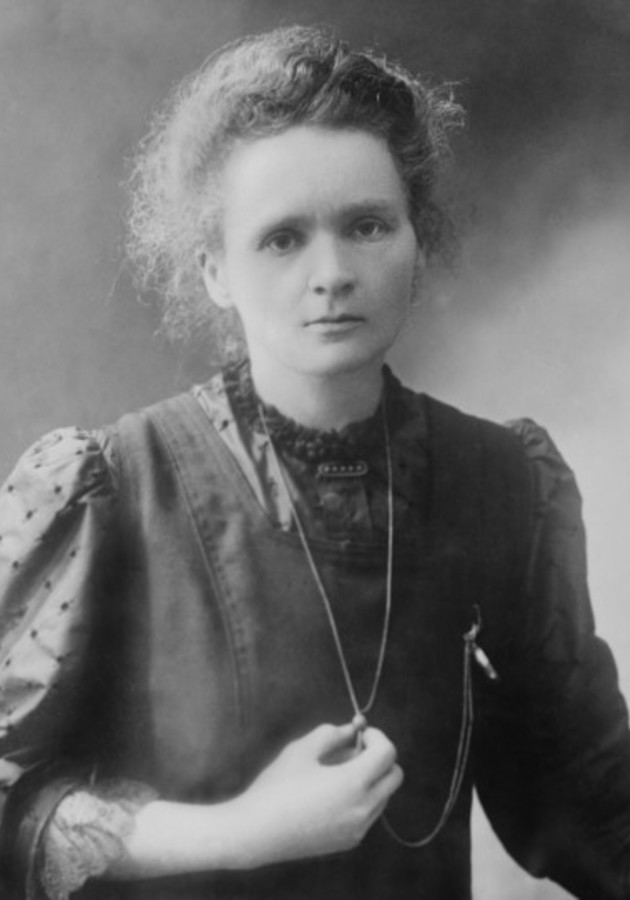The 20th century was one of everlasting change. But since the late 1970s, the desire for innovation in the U.S. seems to have been replaced with a nostalgic longing for the past. After countless waves of cultural and political change, many Americans sought the safety and comfort of the familiar. This gave the political right a unique opportunity to grab power. In “Evil Geniuses,” Kurt Andersen uncovers a right-wing plot that started in the 1980s and continues to the present day. So, get ready to learn how the U.S. came to be in its present political and economic predicament.
A sense of nostalgia
Historically speaking, the U.S. has been characterized as the land of the new. According to Andersen, the U.S. was the first nation “invented from scratch and based on new conceptions of freedom and fairness and self-government and national identity.” Throughout U.S. history, people were striving for change and - especially in the 20th century - every decade was characterized by radical new cultural shifts.
But then, beginning in the 1970s until it reached its peak in the 1980s, American culture radically shifted again - but this time to a feeling of nostalgia, a trend that continues, even today. Assaulted by constant waves of newness, many Americans began to seek the familiarity of the old, which in turn led to a romanticizing and idealizing of the American past.
The author first noticed this when looking at a picture of people in the 1980s. With a jolt, he realized they were wearing more or less the same clothing as people did in 2007. Upon further investigation, he realized that it was not only fashion that had not really changed. The trend extended to music, film, and practically every aspect of modern American culture! While each decade of the 20th century had had its own signature style, the U.S. now seemed stuck in a time warp.
And this trend was not limited to culture; it seemed that politics in the 1980s was also focused on this newfound feeling of nostalgia - a hankering for the perfect American past. The political and economic right, who up to that point had been threatened by an increasingly liberal sentiment in politics, saw this as the chance to stage a comeback - the effects of which are still being felt today.
Anderson says that American politics, economy, and culture have been relatively static since the 1990s. The rise of the right political economy has meant that the richer have only gotten richer. Since 1980, the wealth owned by the top 1% of the population has doubled, while the collective net worth of the bottom half of the population is close to zero. The only incomes that grew alongside the economy were those of the top 10% of the population. How could this happen?
The ascent of liberalism
Once World War I had been won and the Great Depression was behind them, Americans were looking toward a brighter future. In the 1930s, Franklin D. Roosevelt introduced the New Deal, which seemed to ensure that the U.S. would henceforth be a modern country, providing help for the unemployed, youth, and the elderly.
Efforts were made to reinflate the economy, and banks, the rich, and large companies were taxed more heavily than before. The U.S. seemed to be heading toward a future of social equality and security.
The 1960s were an era of almost constant newness, and the difference between life in 1963 and 1969 were enormous. Advancements in space and air travel, the introduction of the television, and the hippie movement created great upheavals in society. Many transformative laws were enacted, such as the introduction of Medicaid and Medicare and Civil Rights and Voting Rights Acts. Many Americans felt so socially secure that they had the strength to lift others up with them, such as African Americans and women.
Toward the end of the 60s, however, these massive changes eventually caused many people’s attitudes to shift from embracing change to becoming scared of it. A sense of nostalgia for the comfort of the old days started to spread. This only intensified in the 1970s: following the Watergate scandal and the Vietnam War, public trust in the federal government plummeted and more than ever, people wanted to return to the good old days.
Nixon in particular had been unpopular, even preceding the scandals of the time. Even though he had pursued left-ish policies, Americans had been cushioned from the insecurity and unpredictability of capitalism for decades, so his politics did not seem revolutionary enough. People had grown complacent in their view that social security would always remain a given and failed to see the dangers facing them.
The economic and political right, who had watched the unfolding of liberal politics with increasing anxiety and panic, now saw their chance.
Building the counter-establishment
Large businesses and the rich had been growing steadily more unpopular as the 20th century unfolded. In 1970, only 33% of Americans still believed that “business tries to strike a fair balance between profits and the interests of the public,” according to the survey firm Yankelovich, Skelly & White. Just two years earlier, in 1968, this number had still been at 70%.
Among the first to raise the alarm on the threat to capitalism were Milton Friedman and Lewis Powell. Friedman, an economist, published a manifesto in 1970 decrying the recent business reforms such as environmental policies and the inclusion of minorities. According to him, the only duty that executives, owners, and shareholders had was to make money – they had no duty to decency or virtue whatsoever.
Friedman said those managers who were making life easier for their employees were essentially committing fraud. He was reacting against the social and economic fairness surge of the 1960s and wanted to go back to a time before that. In the 1970s, when Americans were already nostalgically longing for their cultural past, it was easy to convince them to go back to their economic pasts as well.
Powell, a top lawyer from Virginia, also saw the political economy as being under attack from - according to him - radicals who behaved like “Hitler and his stormtroopers.” In his manifestos, he paved the way for a reform of the judiciary, which eventually happened: the judiciary was infiltrated by right-leaning law graduates who founded the Federalist Society. A new focus was put on the American Constitution, and the right wing ensured that for decades to come, the judiciary system would be on their side.
Libertarians in the 1970s started to work behind the scenes: they established think tanks in favor of right-wing politics, started to build a media empire, and began funding political operations at unprecedented levels.
This culminated in the eventual election of Ronald Reagan as president. With his history as a Hollywood actor, he was the ideal image for a past America. Far from disclosing his intentions of reducing social equality, the Reagan campaign focused on America’s widespread nostalgia for the golden days of the past.
The Reagan era and beyond
During Reagan’s presidency, a range of policies was adopted that forever changed the relative social and economic security Americans had enjoyed up to that point. Reagan’s economic policies included reducing taxes for the wealthy and removing environmental and labor protections.
Instead of the New Deal that Americans had gotten used to, they now got a “Raw Deal” with long-lasting effects, says Andersen. Labor unions slowly began to disintegrate, while the rich started to get richer. The power of workers was eliminated wherever possible. Another effect of these new policies was the invention of the Wall Street shark. Company shares received an entirely new popularity. Eventually, companies started pursuing immediate solutions that would increase their shareholder value, rather than those with long-term benefits.
In his first days as president, Reagan famously said that the government was the problem. He wanted to capitalize on the mistrust Americans had developed throughout the Vietnam war and the Watergate scandal, and this notion was picked up by libertarians in the coming decades. The seeds for mistrust in the federal government were sown in the 1980s.
Another result of the Reagan era was that new and costly federal projects such as Medicare were stopped. This, ironically, led to enforcing the mistrust of citizens in the government, since it is now hard to pinpoint what the government actually does for its citizens.
Finally, oil, gas and coal industries conspired with the right to get Americans to disbelieve the scientific consensus on global warming, in order to protect their businesses. This paved the way for a pervasive disbelief in science.
All these developments explain how a xenophobic, misogynistic, and idiotic businessman could become the president of the United States in 2016 – after all, he had built his election campaign on the mistrust of government and science, and a trust in the corporate world.
Heading toward dystopia?
According to the author, the evil geniuses of the corporate world created a “hijacked, screwed-up political economy” in the U.S. He thinks that it is much easier for an individual to focus on cultural and social nostalgia than to fight for a fairer economy, as this would involve a collective consensus.
The “everything about money and anything for money” attitude has definitely shown itself in the handling of the COVID-19 pandemic in 2020. Instead of listening to scientific advice, the government’s focus (and by extension, the corporate world’s focus) has been on protecting the economy. Andersen notes that the pandemic was ignored until stock prices began to fall, and as soon as possible, shops were reopened to keep the economy afloat.
This attitude has endangered countless lives. It is clear that something needs to be done. But what? Andersen believes it is time to reset the power in favor of the people - not in favor of the big companies. Otherwise, he believes, the U.S. will be headed toward a “super automated plutocracy.” How people work and how they get paid, according to Andersen, should become the primary focus of politics.
In both politics and economics, Andersen advocates for nonbinary thinking. He believes that individuals should take more radical stands in economics, such as claiming back power for workers and citizens and optimizing the economy so that it serves all Americans. Nonbinary thinking involves not having fixed attitudes in how these goals should be reached.
Andersen also gives the example of the U.S. health care system to show how nonbinary thinking could work in policymaking. Currently, the U.S. health care system is confusing, with its combination of private and public elements. It also wastes a lot of money, and is not a fair system for all Americans. Andersen believes a complete overhaul of the health care system is needed, which would leave policymakers with a wide range of options such as copying Switzerland’s almost entirely private health care system or following the UK’s public health care system, or anything in between.
Nonbinary policy making would also embrace the free market effects of government-guaranteed health care, such as the ability to freely change jobs or to raise children instead of working.
Final Notes
The longing for the golden past that found its beginnings in the early 1970s allowed the political and economic right wing of the United States to revert the liberal policies that had taken hold up until that point. From the 1930s onwards, the U.S. had been headed for a future of social equality, but a group of managers, CEOs, and wealthy people managed to introduce policies that protected the rich in the 1980s.
The changes made during the presidency of Ronald Reagan continue to have effects to the present day: a distrust in federal government and mainstream science, along with a changed judiciary, and unequal society.
12min Tip
Why not start a worker’s union at your workplace?




























